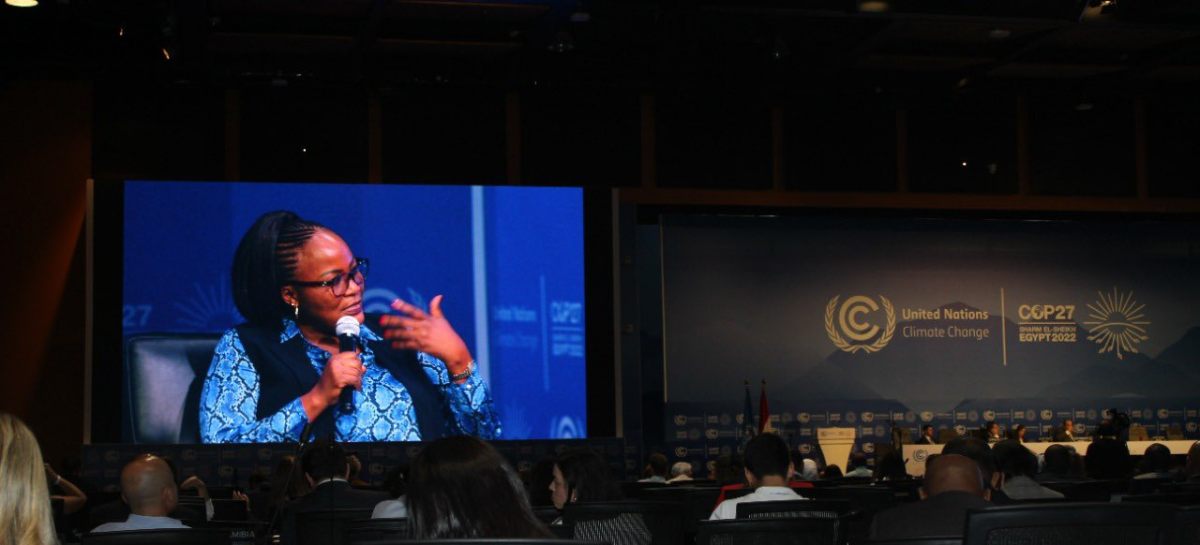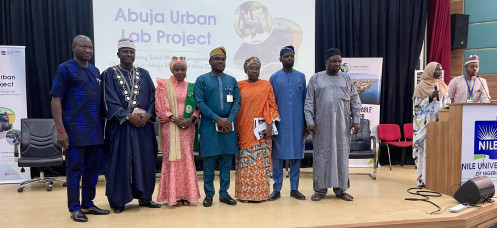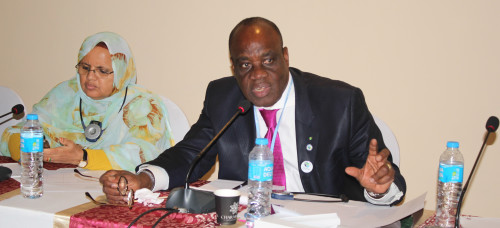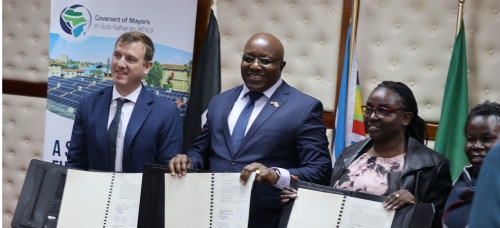COP27, the African COP, was a step forward towards climate justice but more ambitious action is needed to safeguard our cities
Published: 8 Dec 2022
General

Following decades of calls for better inclusion of local government, COP27 made history in bringing greater importance to those considerations unique to local governments which is crucial as cities are first responders to the climate emergency. This article explains important COP27 outcomes, relevant to local governments in Africa.
The 2022 United Nations Climate Change Conference (COP27) was reportedly the second most-attended COP in history. COP27 was dubbed the Africa COP as it was the first time the event was hosted on African soil since 2016.
Breakthrough on “loss and damage”
Following two weeks of intense negotiations, against a challenging geopolitical backdrop, COP27 in Sharm El-Sheikh, Egypt, came to an end on 20 November 2022 with a breakthrough agreement to provide “loss and damage” funding for vulnerable countries hit hard by climate disasters.
“This outcome moves us forward,” said Simon Stiell, UN Climate Change Executive Secretary. “We have determined a way forward on a decades-long conversation on funding for loss and damage – deliberating over how we address the impacts on communities whose lives and livelihoods have been ruined by the very worst impacts of climate change.”
Governments took the ground-breaking decision to establish new funding arrangements and a dedicated fund, to assist developing countries in responding to the impacts of loss and damage. Governments also agreed to create a 'transitional committee' to make recommendations on how to operationalize both the new funding arrangements and the fund at COP28 next year. The first meeting of the transitional committee is expected to take place before the end of March 2023.
This breakthrough agreement on “loss and damage” comes after decades of developing countries and Small Island Developing States (SIDS) making urgent, evidence-based and repeated appeals for the establishment of a loss and damage fund, to compensate those most vulnerable to climate disasters, yet who have contributed little to the climate crisis, like Africa.
Now comes the difficult part – the fund must be set up, and filled with cash. There is no agreement yet on how the finance should be provided and where it should come from.
CoM SSA proudly represents the region at COP27
Comparative to COP26, where very few African local government leaders were able to physically attend and participate, COP27 saw numerous African local governments attending in full force. The CoM SSA Regional Mayors Forum which is comprised of 11 CoM SSA signatory mayors elected by fellow signatories represent the four regions of Sub-Saharan Africa (Southern Africa, Central Africa, Western Africa, Eastern Africa). The RMF was present at COP27 and participated in high-level events hosted by the United Nations Climate Change High-Level Champions, the European Union, the Global Covenant of Mayors and the Local Governments and Municipal Authorities Constituency (LGMA), amongst others. At these events, the RMF members showed the world that African local governments are already carefully planning and acting against climate change but need funding to scale these actions.
At COP27, the chairperson of the Regional Mayors Forum, Mayor of Kloto 1 (Togo) Mr Yawo Winny Dogbatse was appointed to the Global Covenant of Mayors Board where he will represent the Sub-Saharan African region and continue to champion the African voice in global climate change conversations and actions. The Global Covenant Board represents the largest global alliance for city climate leadership, representing more than 12 500 cities and local governments around the world committed to addressing the climate crisis. The GCoM alliance is co-chaired by Michael R. Bloomberg, UN Special Envoy on Climate Ambition and Solutions, founder of Bloomberg Philanthropies and Bloomberg LP, 108th Mayor of New York City, and Frans Timmermans, European Commission Executive Vice-President for the European Green Deal.[ANNOUNCEMENT] Today, at #COP27, #CoMSSA Regional Mayors Forum chair, @YDogbatse was appointed to the @Mayors4Climate board.
— Covenant of Mayors in Sub-Saharan Africa (@CoMOSSAfrica) November 14, 2022
In this role, he will champion the #African voice in global #climatechange conversations and ACTION. #FinanceForAfrica
????https://t.co/9vitFD7DVQ pic.twitter.com/N1Thpn4EdP
Milestones for local and subnational governments at COP27
On 17 November 2022, the Egyptian COP27 Presidency convened the first-ever COP27 Urbanization and Climate Ministerial which united the climate and urban communities in a way never seen at the UNFCCC before. The session hosted by Assem Abdelhamid Hafez El Gazzar, Minister for Housing, Utilities, and Urban Communities of Egypt, focussed on housing, urban development, and multilevel action for climate change.
National governments play an enabling role in implementing subnational climate actions and plans therefore multi-level governance is critical to developing and implementing new climate commitments at the local level. The Ministerial reinforces the commitment of the Paris Agreement for multi-level climate action and will commit to accelerated climate change mitigation, adaptation action and local climate finance.
At this Ministerial, the COP27 Presidency, in collaboration with the UN-Habitat and facilitated by ICLEI, launched the Sustainable Urban Resilience for the next Generation (SURGe) Initiative. “The initiative will work to enhance and accelerate local and urban climate action through multi-level governance, engagement, and delivery to transform cities to be healthy, sustainable, just, inclusive, low-emission and resilient urban systems for a better urban future for all.”
COP27: Together for implementation
One of the main concerns in the climate community around the COP27 cover decision or the Sharm el-Sheikh Implementation Plan is the wording on fossil fuels. The COP26 cover decision, Glasgow Climate Pact — made history last year by explicitly calling for a “phasedown of unabated coal” and “phase-out” of “inefficient” fossil-fuel subsidies. Many were hoping that COP27 would see these terms being strengthened to “phase out” of fossil fuels as they are a determining threat to limiting the temperature increase to 1.5°C above pre-industrial levels. However, it is important to note that in Africa many countries depend on fossil fuels to power their nations and even in this context energy access is amongst the lowest in the world. Phasing out fossil fuels and providing energy access to all requires large-scale funding and other major resources to transition to a low-carbon option.
A decisive step towards a low-emission development path in South Africa was further cemented at COP27 through the strengthening of the Just Energy Transition Partnership (JETP) which was first launched at COP26. The JETP was highlighted in the Sharm el-Sheikh Implementation Plan as one of many “cooperative actions” that should be seen as an example for how to implement low carbon large-scale projects.
COP27 emphasised the need for increased momentum to reform the Multilateral Development Banks and International Financial Institutions and called on the shareholders of these institutions to take decisive action to scale-up climate finance in 2023 and make their institutional arrangements fit for purpose. Reform of this kind, which was widely discussed at COP27, could involve a recapitalisation of the development banks to allow them to provide far more assistance to the developing world.
COP27 President Sameh Shoukry announced the Sharm el-Sheikh Adaptation Agenda to improve the resilience of four billion people living in the most climate vulnerable communities by 2030. The Agenda is a global plan to mobilize states and non-state actors to achieve 30 adaptation outcomes, including the Planning Outcome that "10 000 cities have evidence-based, actionable adaptation plans in place by 2030". Some locally-led adaptation examples undertaken by Cities Race2Resilience signatories (of which some are CoM SSA signatories) were included in the report the in-depth reports .
Opportunities and resources for local government
Launch of Beat the Heat, a campaign inviting cities in developing countries to commit to scaling up nature-based solutions in their urban areas by 2030. Participants will be supported through funding, technical assistance, partnership opportunities and support to communications.
The Summary for Urban Policymakers initiative has released three documents that translate the climate science from the latest IPCC report for urban policymakers. It also published an Action Agenda , which includes input from city and business leaders.
RMI launched a report on the value of urban nature to help local decision-makers and investors increase investment in urban nature. The report concludes that, globally, the value of the benefits of urban nature is nine times higher than the costs.





